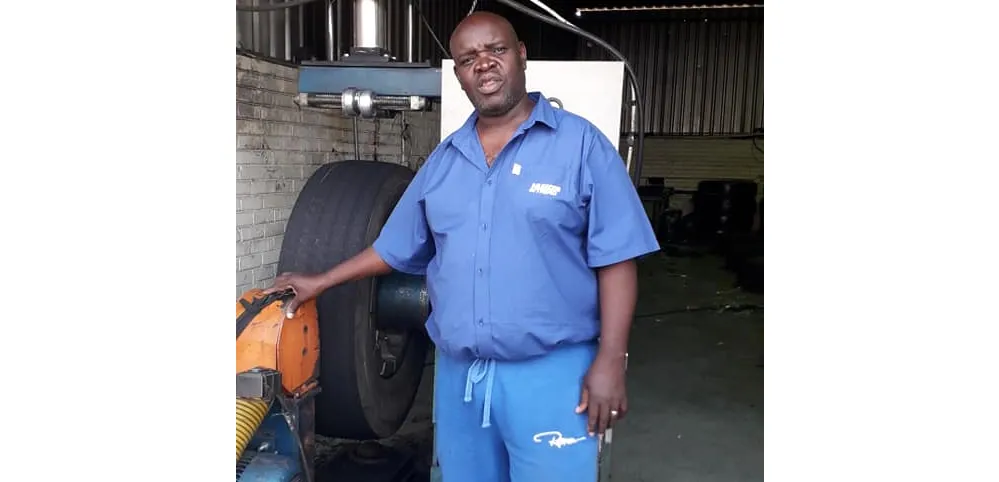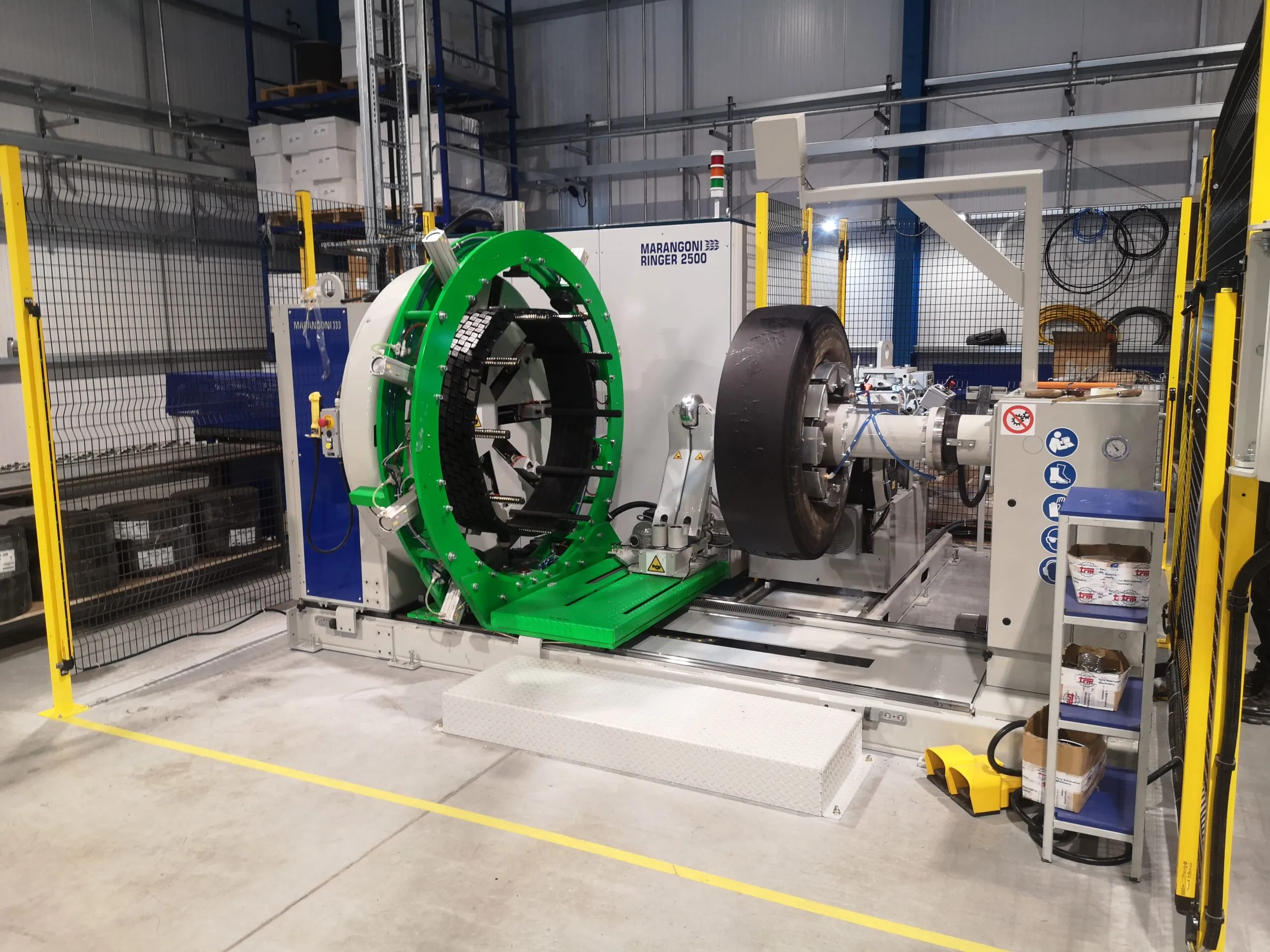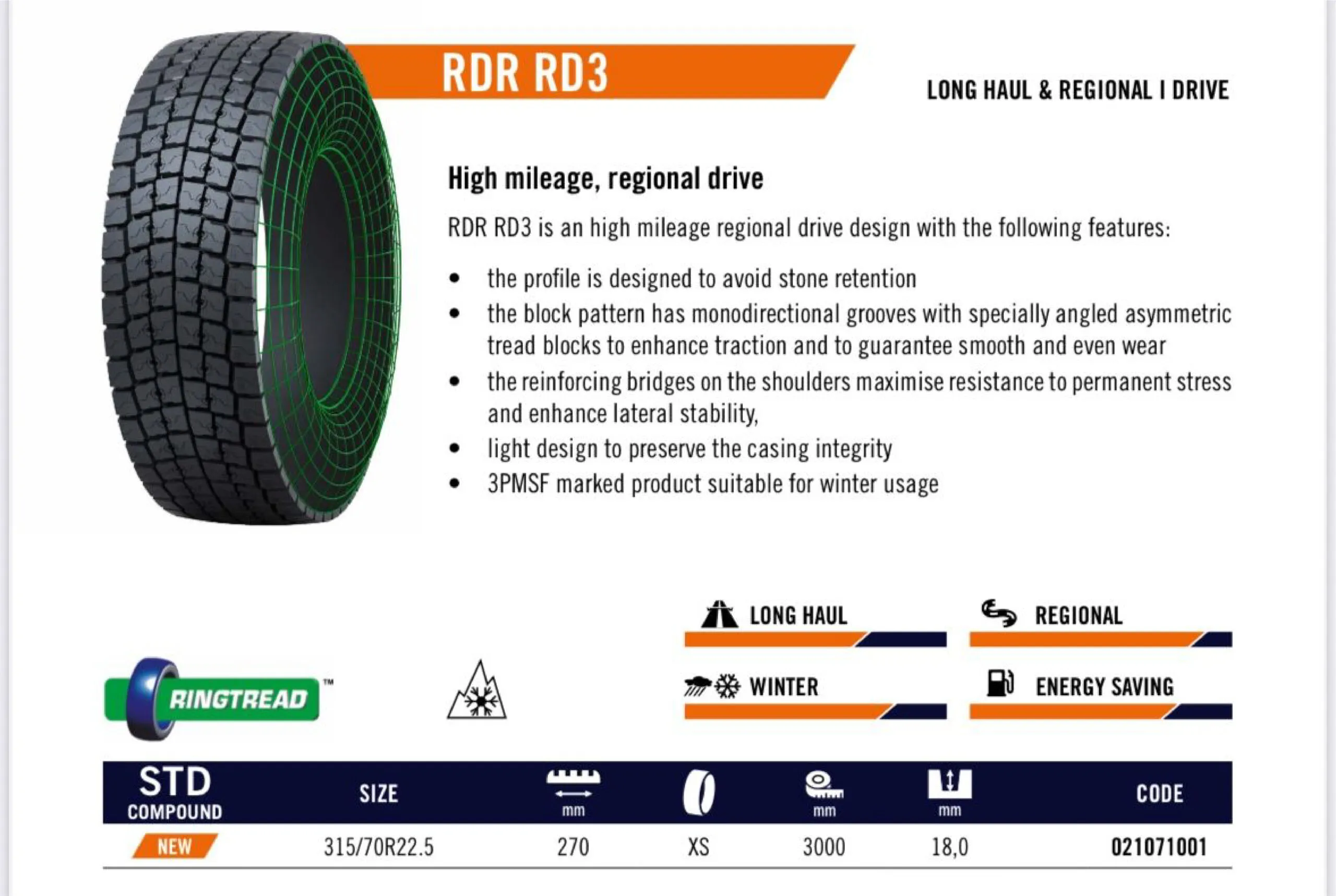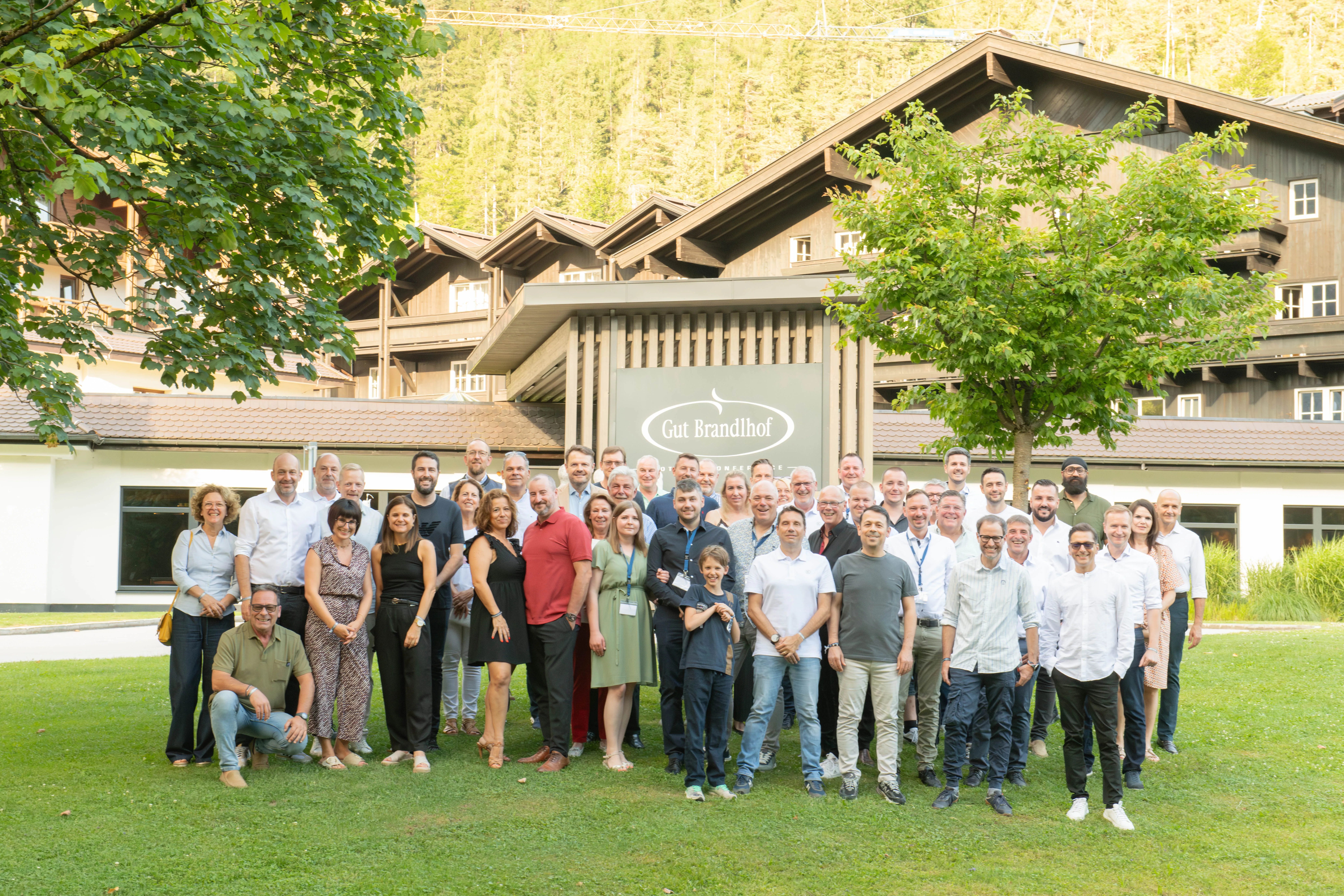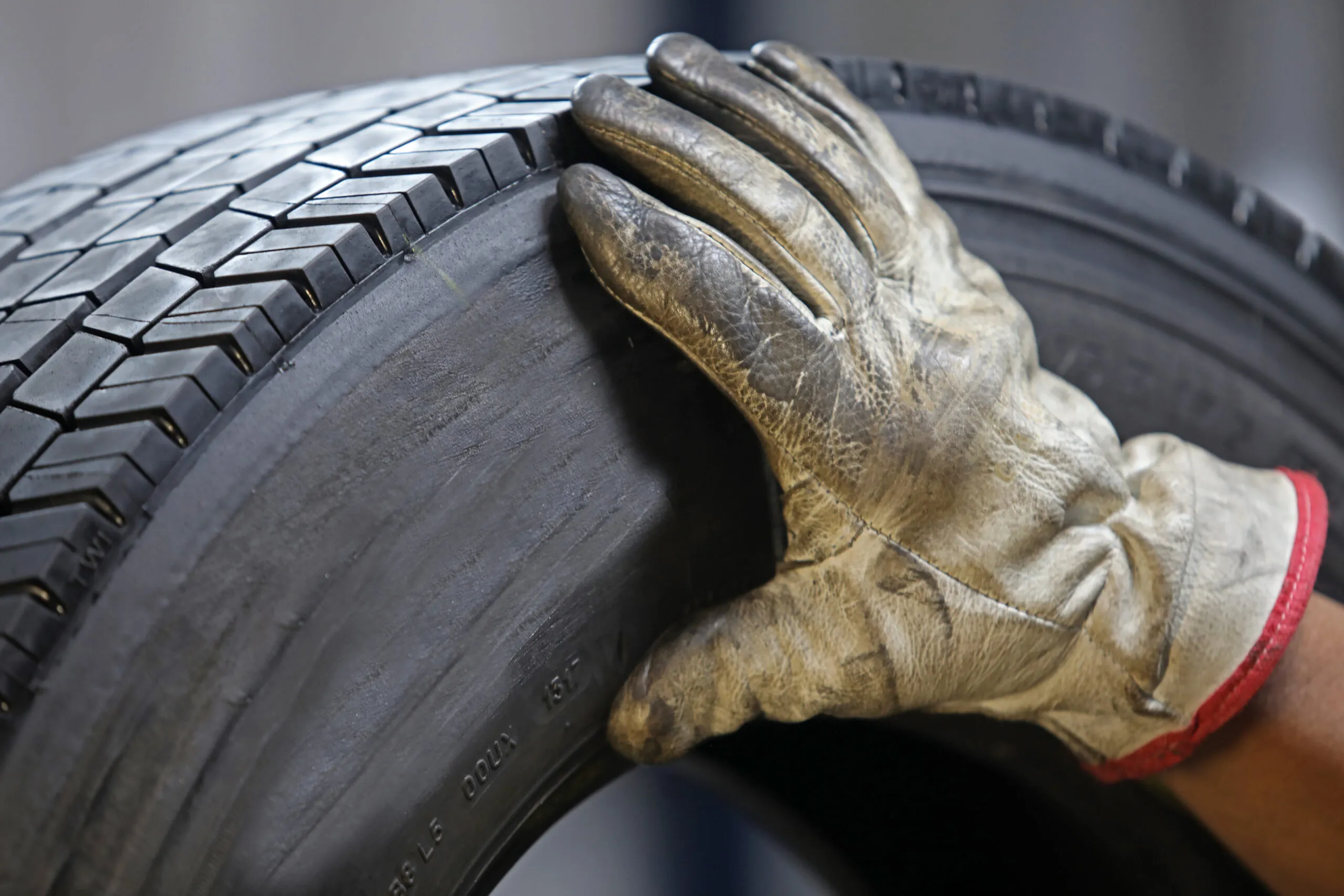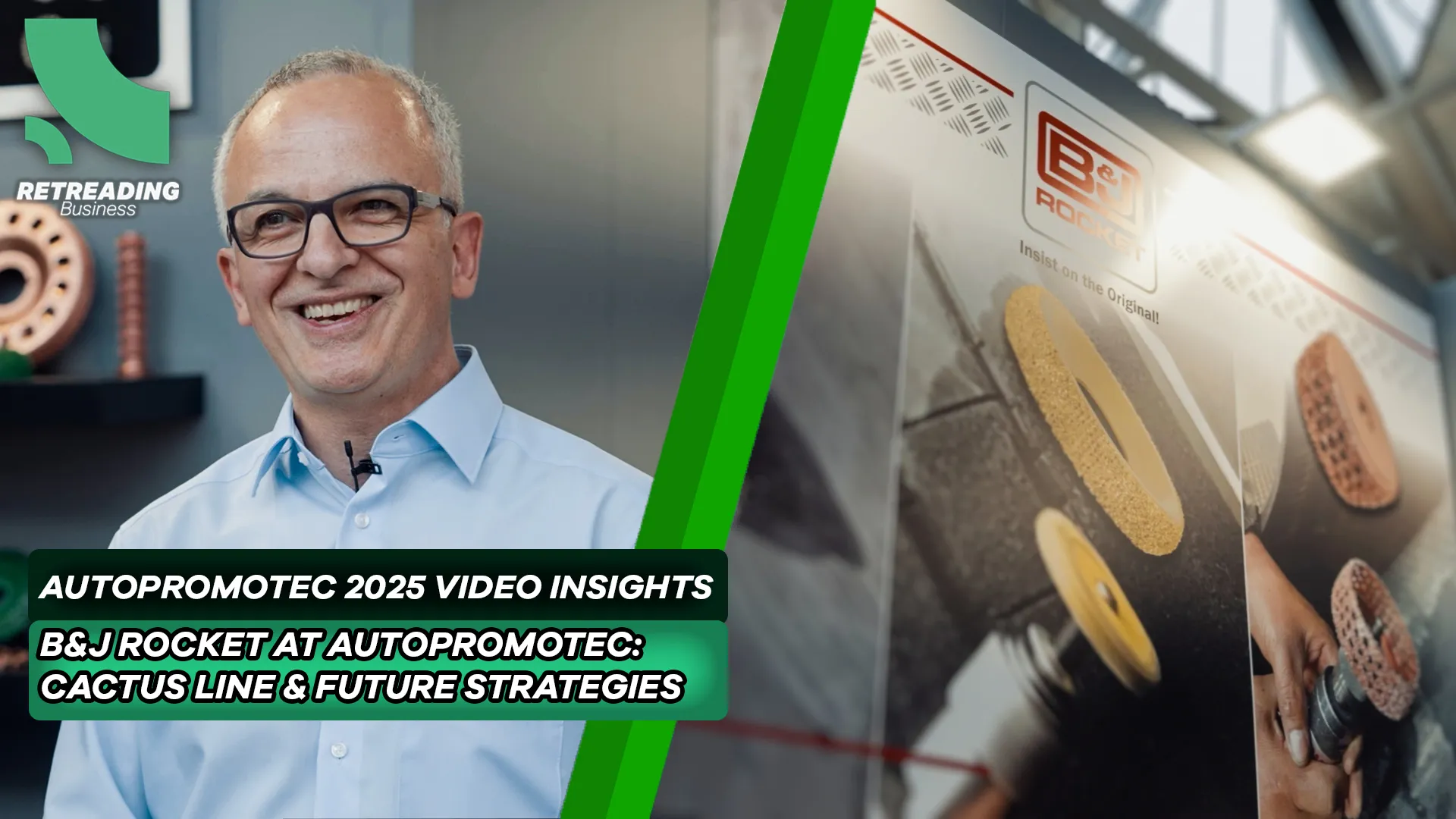“When an idea strikes, put it in practice however small it may be, it may turn out to be successful.” It is on this premise that Paul Mlambo, a Zimbabwean citizen resident in Botswana, established 633 Tyres, one of only two retreaders in Botswana, in 2017.
633 Tyres Looks to Expand
Mlambo’s journey into the business of retreading started back in 1990 in his home country when he secured employment with Tyre Treads Zimbabwe. While working as a cleaner in the company’s factory, a vacancy opened for a machine operator. He secured the contract and began to learn on the job.
In the factory set up, he managed to learn all the factory operations including receiving bay, buffing, skiving, repairing, cement application, tread application, stitching, and enveloping. At that time Tyre Treads Zimbabwe had 16 sales branches throughout Zimbabwe, with 3 retreading factories for car and commercial tyres in Harare, Bulawayo and Masvingo.
The Harare and Bulawayo plants processed both hot cure and cold retreads. In addition, it had two earthmover factories with milling of rubber compounds being carried out in Harare and Bulawayo. Five years later, he enrolled for a course in Retread Process and Workshop Practice with the Retread Manufacturers Association in the UK (RMA), under the guidance of City & Guilds, a global vocational, education and apprenticeship scheme, from April 1995 to November 1995.
Two years later, he went back to the internationally renowned course facility for the second part of his programme. The RMA was then headed by Sheila Ikin. Mlambo secured an appointment with Tyre Treads immediately after his programme as the company’s quality controller in both passenger and commercial tyre retreading.
“I was responsible for the supervision of producing quality products, which give the end user maximum mileage. Due to the desired results, I was tasked to supervise the earthmover section where I trained, monitored and carried out claim adjustments, scrap tyre analyses and fleet tyre inspections,” Mlambo told Retreading Business.
Mlambo’s life didn’t follow through an easy career path; he has had the ups-and-downs of every entrepreneur, both in his home country of Zimbabwe and abroad, but this didn’t deter him from his vision.
In 2007, he left Zimbabwe for Botswana in search of greener pastures and joined Maxiprest Tyres in Gaborone, the capital city of Botswana as their technical adviser. Four years later, he left Maxiprest and moved on to Eastern Tyre, a tyre retreading company under Chinese ownership, but unfortunately, things soon turned sour for him and his Chinese employer.
“My boss then hired me because he had no option; he was paying me a good salary which was like a thorn in his flesh. So, we were always at loggerheads. This prepared me for my exit by purchasing a 7-tyre chamber for a small factory.”
In May 2017, Mlambo started with a small retreading facility with meagre operations at Mochudi located 22km east of Gaborone. Production was carried out twice a week giving him a total of 14 units of tyres.
As the work has taken off, it has earned Mlambo broad recognition across Botswana. He has managed to build a brand for himself and is known by most transport operators in Botswana.
“When you come to Botswana and you talk about Paul Mlambo, you are simply talking about retreaded commercial transport tyres because they all know what I do and they patronise me.” Mlambo said.
His central goal is to upgrade the chamber from seven to 14 tyres. But challenges abound, from getting enough funds to having the government enact laws prohibiting importation of tyres from the Far East.
“The biggest challenge was the fact that I am in a foreign land with no access to capital to grow my business, so I focused much more on repairs of damaged tyres to raise funds.” He told Retreading Business.
To achieve his ambition of upgrading his tyre chamber from seven to 14 tyres, Mlambo reached out to Leadertread in South Africa for a soft loan of about 30,000 South African Rand worth of rubber materials due to his existing relationship with it back in Zimbabwe in 1998.
Mlambo’s plan was to collect these materials, use them for his retreads, make sales, pay the loan and get another supply of materials. “That was the idea that helped me improve in my retreading business,” he said.
Mlambo’s output of retreads has improved, but he still believes he is yet to get to where he ought to be. “We are currently managing to retread two sets of 7 tyres a day whereas my machine can retread up three sets of 7 tyres a day. Although, I was working two days a week then but now, I can work from Monday to Friday, producing 14 tyres a day,” he adds.
In 2009, he began to conduct research to find out how many units of tyres are needed in Botswana on a monthly basis. His discovery, he says was overwhelming.
“I discovered that we need about 2,000 units of tyres and we have only two retreaders operating—the Chinese owned plant and myself. While I retread about 200 units of tyres, Eastern Tyres produces 200 units, which means the remaining 1,600 is sent to South Africa for retreading and imported to Botswana because it does not have the capacity to retread the 2000 tyres that are required each month.”
Obviously, the rising demand for tyres due to the continuously escalating importation of vehicles on Botswana roads, has led to stiff competition across the country from companies seeking to garner a major share of the market for tyres in the emerging Botswana tyre market.
The country has a porous port system which encourages the importation of cheap new tyres from the Far East – mainly China, putting the local tyre market under pressure, which has forced local tyre producers out of competition.
“The tyres on our roads in Botswana are mostly Chinese tyres, but their lifespan isn’t as good as the ones that are retreaded here in Botswana and South Africa.”
“Cheap Chinese tyres cannot be retreaded to give maximum mileage. You have to give customers a lot of explanation as to why these Chinese tyres are dangerous for use so they can realise that our retreads are even better than new Chinese tyres.”
Mlambo believes that the discrepancy in durability is enough to convince users to purchase retreads, “A retread can cover more than 60,000 kilometres, while a new Chinese tyre can give you 36,000 kilometres, so these discrepancies are good enough to convince customers of the argument for retreads,” he said.
However, it is illegal to retread passenger tyres in Botswana; the government allows retreading of only commercial tyres and earthmovers, while the ones for the mines are done in South Africa.
So far, Mlambo has experienced progressive growth in his business and projects to expand further in the near future.

